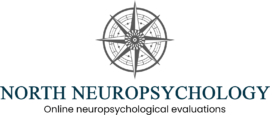In the USA, more people are affected by Neurodevelopmental disorders. Because of the lifestyle change, there is more chance of getting Neurodevelopmental disorders. Neurodevelopmental disorders are changes or delays in functions normally connected with the development of the central nervous system. Neurodevelopmental disorders in USA can be treated with early diagnosis.
Autism, attention-deficit/hyperactivity disorder, learning difficulties, cerebral palsy, and intellectual disability are among the most common neurodevelopmental disorders, but there are many others. Let’s discuss more about neurodevelopmental disorders in detail:
Signs of Neurodevelopmental Disorders
Until now, it was difficult to tell if a kid had a neurodevelopmental issue until they reached school age, at which point assistance was ineffective. Today, due to the development of clinical milestones, healthcare experts may spot substantial delays and offer suggestions for early diagnosis. However, many believe it is critical to a child’s growth into a functioning, independent, and thriving adult. Your child may show signs of a neurodevelopmental problem if they,
- Fail to fulfill key developmental milestones, such as sitting up, crawling, handling objects, or throwing tantrums.
- Does not respond to outside stimuli.
- They do not make eye contact, their eyes are crossed most of the time, or they cannot control the direction of their gaze.
- Do not reach for, grasp, or hold objects.
- Do not smile, wave, reach, or point.
- Does not follow simple instructions.
- Does not mimic actions or speech.
What Is Early Diagnosis?
The signs and symptoms of Neurodevelopmental disorders in USA differ. Treatment approaches vary according to the child’s needs.
Some common interventions include:
- Speech and language therapy.
- Occupational therapy helps improve fine motor abilities for daily functioning.
- Physical therapy can help improve physical skills like walking.
- Behavioral treatment to repair or minimize undesirable behavior.
Early intervention is most effective when family, doctors, caregivers, teachers, and community members collaborate. The treatment strategy should be highlighted at both home and school.
Benefits of Early Diagnosis
- Improved Intervention Access
An early diagnosis makes a variety of educational and therapeutic initiatives possible. Examples include individualized education plans, occupational therapy, behavioral treatment, and speech therapy. Having access to these materials can greatly enhance a child’s growth line.
- Better Relationships in the Family
Families frequently feel confused and stressed when a kid shows signs of developmental difficulties without a definitive diagnosis. Clarity from an early diagnosis helps parents and other caregivers comprehend their child’s requirements and implement useful methods. This can create a more encouraging atmosphere at home and lessen parental stress.
- Improved Long-Term Results
According to research, early intervention has been linked to improved long-term results in independence, work, and academic performance. When developmental impediments are addressed early, children are better prepared to realize their full potential.
- Preventing Secondary Conditions and Complications
Difficulties and secondary health problems might be avoided with early detection. For example, heart attacks and strokes can be avoided by identifying cardiovascular risk factors early, such as obesity or high cholesterol. Similarly, early detection and treatment of infections can stop organ damage and chronic illnesses.
Why It Matters?
The need for early diagnosis has wider societal ramifications and personal advantages. Early detection and care can decrease the financial cost of untreated neurodevelopmental disorders.
Early therapy can raise the likelihood of independent adulthood, lower healthcare expenses associated with comorbid diseases, and lessen the need for specialized schooling programs. Furthermore, early diagnosis promotes equity and inclusion by allowing all children to engage in meaningful community participation, irrespective of their obstacles.
Bottom Line:
Millions of people in the USA suffer from neurodevelopmental disorders, which have a significant impact on their lives and communities. Facilitating prompt intervention, individualized support, and early diagnosis is essential to reducing these effects for kids with Neurodevelopmental disorders in USA. According to research, early intervention greatly enhances social, behavioral, and cognitive outcomes, lowering long-term difficulties for individuals and families.





